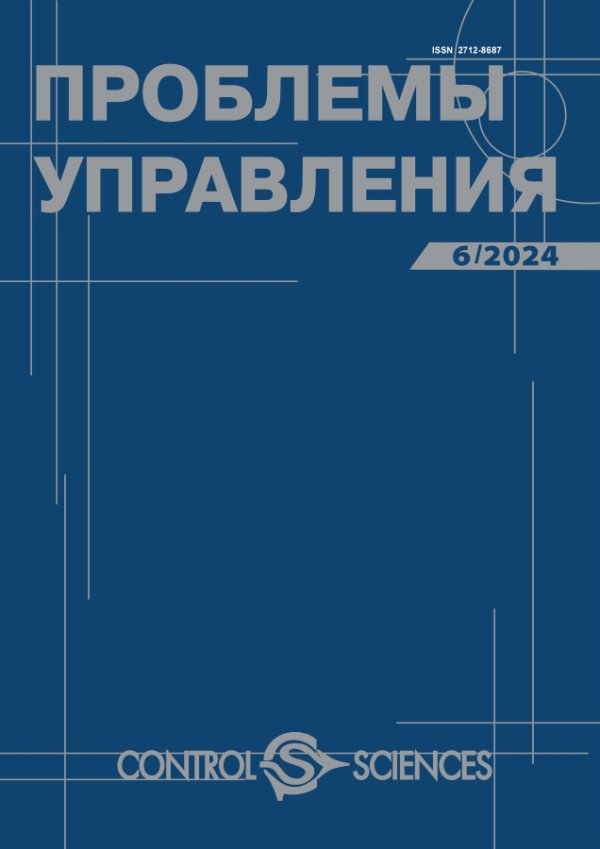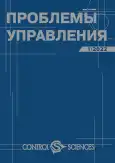No 1 (2022)
Surveys
PROBLEMS OF MANAGING THE FIRE SAFETY SYSTEM OF A FACILITY. PART I: ASSESSMENT METHODS
Abstract
The scope and capabilities of managing the fire safety system of a facility from the position of its representative (head) are overviewed. Part I of the survey is devoted to the general problem statement and methods to assess the fire safety of a facility and the safety of people inside a building. As shown, fires and deaths of people testify to certain problems either in the facility’s fire safety system or in the management of such a system. The existing methods for assessing the fire safety of a facility cannot be applied by its head: they require deep knowledge of the subject matter as well as the corresponding qualifications and tools (computer programs). In the current situation, the head (decision-maker) has no formalized objective assessment of the fire safety of his organization at a particular time, which significantly complicates (or even disables) rational decision-making.
Control Sciences. 2022;(1):3-18
 3-18
3-18


Control in Social and Economic Systems
OPTIMAL CONTROL OF THE LIFE CYCLE OF COMPLEX SYSTEMS
Abstract
This paper considers optimal decision-making during the life cycle management of complex systems of aerospace, power, nuclear, transport, and other complex entities, capital objects and systems of the power, telecommunications, transport, agriculture, raw material, and other industries as well as information systems. The system-wide peculiarities of the life cycles of complex systems are identified and analyzed. Qualitative formalisms to represent life cycles are proposed; mathematical foundations of the problem of their optimal control are described. A mathematically rigorous optimal control problem for the life cycle of complex products, objects, and systems is stated. An algorithmic solution of the optimal control problem based on the formalisms of dynamic programming is developed. A practical way of applying this algorithm based on the scenario approach is proposed; the conditions of life cycle control optimization (under which optimization is possible) are listed. The results presented below are an optimal control tool for the life cycle of complex products, objects, and systems.
Control Sciences. 2022;(1):19-32
 19-32
19-32


Some social and ethical norms of behavior: mathematical modeling using game-theoretic approaches
Abstract
This paper overviews game-theoretic approaches to model the impact of prevailing behavioral norms (selfishness and altruism, morality on the example of Kant’s imperative or the Golden Rule of ethics) on the development of some community. In addition, we study the effectiveness of the community depending on the prevailing worldview of its representatives. The equilibrium of the maximum cooperative income is investigated for communities whose representatives observe, to some extent, public interests rather than personal ones. The effectiveness of communities whose representatives follow Kant’s imperative or the Golden Rule of ethics is considered using a game-theoretic model of social choice between two norms of behavior: one generally accepted but obsolete, and another new, not yet widespread, but advanced and progressive. The results can be used to assess the effectiveness of ongoing pedagogical work and state planning in the areas of upbringing and education.
Control Sciences. 2022;(1):33-53
 33-53
33-53


Control of Moving Objects and Navigation
A conceptual APPLIED GEOGRAPHIC INFORMATION SYSTEM FOR modeling SEARCH AUTONOMOUS CORRELATION-EXTREME NAVIGATION SYSTEMS
Abstract
This paper presents a conceptual applied geographic information system (AGIS) for modeling search correlation-extreme navigation systems (CENSs) to control moving objects. As demonstrated below, the development and mass implementation of autonomous navigation systems of this type as the only alternative to satellite navigation systems can currently be based on subject-oriented information technology. The AGIS can be used to assemble models of a wide range of CENSs and models of technologies for adjusting their operation in specified areas with necessary computational experiments. The required software components, storage structure, and interface features are determined by constructing a general mathematical model. While preserving all specifics of the search algorithms of CENSs, this model covers the well-known image combining algorithms and, moreover, includes a synthesis scheme for search algorithms of new-type CENSs using pattern recognition and scene analysis, clustering, neural network training, and cloud data processing. Stress testing is the most important type of computational experiments with CENS models. A mathematical model of stress effects is constructed for a particular case. It describes various operating conditions for CENSs, including fatal deviations from normal operation.
Control Sciences. 2022;(1):54-66
 54-66
54-66


GROUP CONTROL of unmanned aerial vehicles: A GENERALIZED PROBLEM STATEMENT OF APPLYING ARTIFICIAL INTELLIGENCE TECHNOLOGIES
Abstract
This paper considers elements of a group of unmanned aerial vehicles (UAVs) to form various tasks of the group and within a group of aerial systems. Different phases to execute control actions for a group of aerial systems of UAVs are proposed. These phases are shown by an example of selecting different targets for group elements (UAVs). The phases are elements of the large-scale behavior of the group and in the group of UAVs and can be included in the cycle when using artificial intelligence technologies. The approach is formalized for single-function UAVs (choosing a set of end actions) and multifunction UAVs (performing one or more impact functions within the group). A group control problem for applying artificial intelligence technologies is stated. The main elements of the system of relations and conditions for effectively performing tasks by a group of UAVs and executing actions within the group as a large-scale system are formulated. This system reflects the problem statement for applying artificial intelligence technologies. As noted, using homogeneous and heterogeneous groups of UAVs is a promising approach to interpret the formal behavior of robotic systems.
Control Sciences. 2022;(1):67-74
 67-74
67-74


Chronicle
29TH INTERNATIONAL CONFERENCE ON COMPLEX SYSTEMS SECURITY CONTROL
Abstract
The conference took place in December 2021. Scientific results presented by the conference participants are briefly outlined below. The conference sections were theoretical and methodological problems of security support, problems of economic and sociopolitical security support, problems of information security support, сybersecurity and features of security in social networks, ecological and technogenic security, modeling and decision-making for complex systems security control, automatic systems and means of complex systems security support, legal aspects of complex systems security support. At the conference, 123 authors from 49 organizations (Russia and some foreign countries) presented 84 papers. For the second year, conference participants dealt with improving the efficiency of counteraction to the COVID-19 pandemic in their papers. A distinctive feature of the conference is numerous papers on various topics, presenting research results on a wide range of methodological and applied problems of improving the effectiveness of security control processes in the context of digitalization, the rapid development of information and communication technologies, and the threats and risks associated with these processes.
Control Sciences. 2022;(1):75-80
 75-80
75-80












